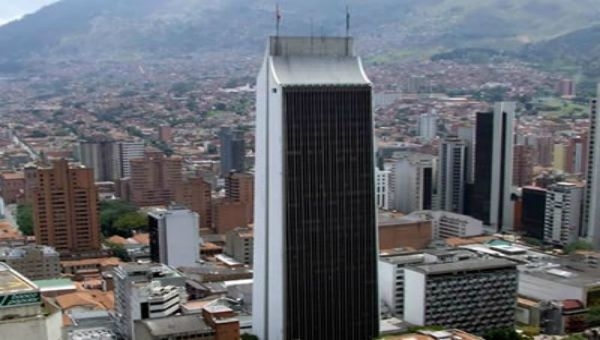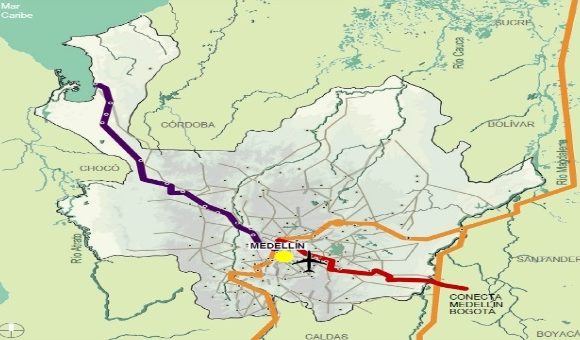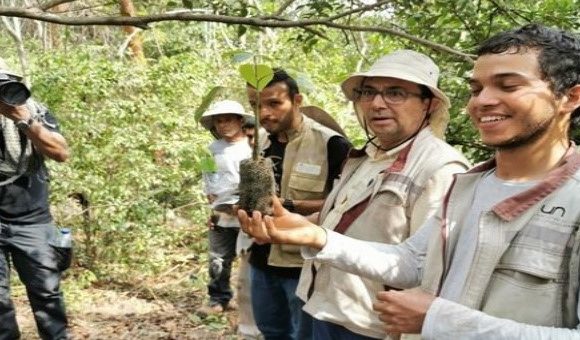Colombia’s Economic Slowdown Penalizes Medellin in ‘Como Vamos’ Survey

The annual “Medellin Como Vamos” (“how are we doing?”) citizen survey released March 15 finds that while most Medellin residents remain relatively optimistic, Colombia’s economic slowdown in 2017 pushed the favorability index downward.
The face-to-face survey in November 2017 of 1,500 residents across all zones and all socio-economic strata found that in general — compared to the 2016 survey — Medellin residents trimmed their relative satisfaction with the city as a place to live, while individual satisfaction with the quality of life “fell appreciably compared to 2016 and compared to the historical average of each one of the ratings,” according to the survey report.
With employment and health being the top-two concerns of Medellin citizens, “it is telling that in [2017] the national economy showed signs of stagnation, with a consolidated growth of 1.8%, the lowest registered since 2010, and very similar to that registered in 2009, when the economy grew by 1.7%,” the report noted.
“This was reflected in fewer job opportunities for all those who sought employment in the city and the metropolitan region, with an unemployment rate that remained above 10%. Thus, while 27,000 new jobs were created, the population that was looking for work also grew, resulting in 7,000 more people unemployed.
“Regarding health, the results of the survey show that, in a context of greater coverage of the health service and greater reported access, there are still pending challenges to be solved, specifically in terms of quality,” the survey added.
Availability of prompt outpatient service declined year-on-year, “with two out of 10 Medellin residents having to wait more than 30 days,” the survey found. “Although satisfaction with the health service remained stable, comparatively [the ranking] remains one of the lowest among the goods and services investigated by the survey.”
For Medellin’s poorest sectors (“estrato 1” and “estrato 2”), the overwhelming majority of them are in the government-subsidized sector affiliated to the Savia Salud “EPS” (health maintenance organization), in which the city of Medellin owns 36.65%, the departmental Antioquia government another 36.65%, and worker-benefits cooperative insurer Comfama owning the remaining 26.7%.
Problem: Savia Salud is running more than US$250 million in the red, as spending far out-runs income — and politicians warn of potential financial collapse. Such a collapse would leave some 1.7 million of the poorest residents in Antiqouia –the majority of which live in and around Medellin – without health insurance.
Among the 13 measurements in the survey: “subjective well-being,” in which those surveyed indicated average satisifaction of 6.99 points on a scale of 0 to 10, where 0 is the worst possible and 10 the best possible.
As for “poverty and inequality,” the percentage of inhabitants of Medellín considering themselves as “poor” fell slightly in the 2017 survey, at 19%.
As for “citizen security,” the percentage of people in Medellín who considered the city to be safe “decreased by four percentage points [in 2017] compared to 2016,” the survey found.
As for “environment,” air-pollution concerns grew, as “air is the environmental aspect of Medellín with which fewer citizens are satisfied,” according to the report. Only 15% of citizens surveyed said they were “satisified” with air quality – by far the worst result among all survey questions, the report noted.
As for “public management,” the survey found that “employment, health and housing are the agenda items that citizens propose” for the Medellin Mayor to put as highest priorities.
As for “economic situation, food and employment,” only 38% of Medellin households said their economic situation improved in 2017, wheareas in 2016, 51% cited improvements.
As for “education,” 79% of the surveyed homes in Medellín indicated they were “satisfied with the education received by children and young people between 5 and 17 years old.”
As for “housing and public services,” Medellin citizens “remained highly satisfied with their housing and their neighborhood. The public natural-gas home service maintained the highest satisfaction while internet [service] rated the lowest satisfaction,” according to the report.
As for “mobility and public space,” 35% of those surveyed “affirmed that their trips took longer in 2017 than in 2016,” because of continuing growth of the motor-vehicle population — without a corresponding growth in road infrastructure or a corresponding increase in high-capacity, high-quality public-transit options.
As for “citizen responsibility,” the survey found that “ethnic minorities, reintegrated people [those fleeing the countryside to relocate in the city] and people with different sexual orientations were the groups about whom there is less respect in Medellín.”
The annual “como vamos” surveys are sponsored by Fundación Proantioquia, the Medellin and Bogota Chambers of Commerce, Eafit University, Comfama, daily newspapers El Colombiano and El Tiempo, and Fundación Corona.
















